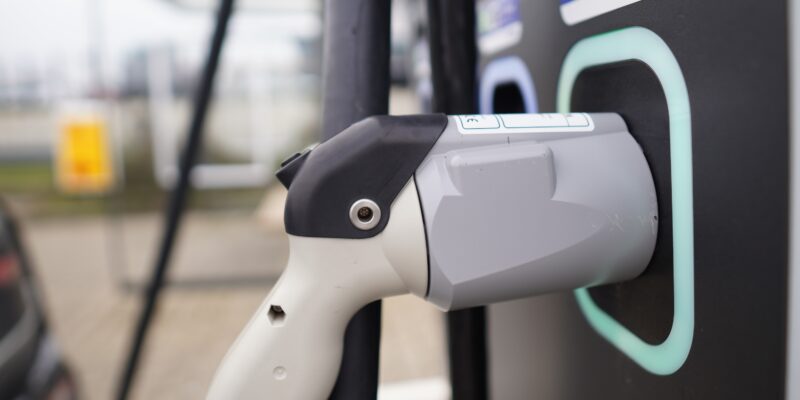What Are the Negative Effects of Electric Cars?
The widespread adoption of electric cars in recent years has undoubtedly been a positive step towards achieving sustainable transportation. With their promising potential to reduce greenhouse gas emissions and dependence on fossil fuels, electric vehicles (EVs) have garnered widespread acclaim, even from those who were once reluctant. However, like any transformative technology, electric cars are not without their drawbacks. One question that we are frequently asked is: What are the negative effects of electric cars?
As avid car enthusiasts, let’s take a closer look at the flip side of the coin, delving into the challenges and negative impacts linked to electric cars.
5 Negative Effects of Electric Cars
When people say “the good comes with the bad,” they are acknowledging that positive aspects or benefits often coexist with negative drawbacks in any given situation. This phrase reflects the idea that nothing is entirely perfect, and every decision or choice involves trade-offs and compromises. Electric vehicles, too, are no exception.
Although it would be ideal to believe that driving electric is without repercussions, the reality is quite different. There are contributing factors that one should be aware of, and they play a significant role in shaping the overall future and impact of electric transportation:
1. Environmental Impact of Battery Production:
While electric cars emit fewer pollutants during operation, the environmental impact of battery production can be significant. The mining, extraction, and processing of rare and precious metals, such as lithium, cobalt, and nickel, for battery manufacturing can lead to habitat destruction, deforestation, and water pollution in certain regions. Responsible and sustainable sourcing of raw materials is crucial to mitigate these negative effects.
2. E-Waste and Recycling Challenges:
As EV adoption accelerates, the eventual disposal and recycling of used batteries pose a growing challenge. Managing electronic waste (e-waste) from decommissioned batteries requires proper infrastructure and recycling facilities to prevent environmental contamination and health risks. Addressing e-waste concerns is paramount in ensuring the sustainability of electric cars.
3. Strain on Power Grids:
The integration of electric vehicles into everyday life has the potential to strain existing power grids. As more people charge their EVs, especially during peak hours, it could lead to increased demand for electricity, requiring upgrades and investments in grid infrastructure. Balancing power supply and demand becomes essential to prevent potential grid overloads.
4. Limited Range and Charging Infrastructure:
Range anxiety remains a significant concern for many potential EV buyers. While advancements have increased the range of electric vehicles, it is still lower than traditional internal combustion engine vehicles, especially in lower-priced models. In addition, the availability and accessibility of charging stations must improve to accommodate long-distance travel and encourage EV adoption in rural and remote areas.
5. High Upfront Cost:
As probably the most relevant barrier to adoption, electric vehicles remain too pricey. Although the lifetime operating costs of electric cars are lower due to reduced fuel and maintenance expenses, their upfront cost are relatively higher than traditional vehicles. This price disparity can be a deterrent for cost-conscious consumers, despite potential long-term savings.
Wrapping up
While EVs undoubtedly contribute to a greener future and environmental preservation, it is essential to acknowledge and address the negative effects of electric cars, as well as the challenges associated with this transformative technology. Sustainable battery production, responsible e-waste management, grid optimization, and charging infrastructure expansion are some of the key areas requiring attention. Achieving a harmonious balance between the environmental benefits and challenges is crucial to ensure the continued progress and continuous adoption of electric vehicles as a sustainable mode of transportation.
Frequently Asked Questions (FAQs) About the Negative Effects of Electric Vehicles
What is the carbon footprint of electric vehicle manufacturing?
Electric vehicle manufacturing has a carbon footprint due to energy-intensive processes, but it can be offset by the lower emissions during the vehicle’s operational life.
Are there efforts to improve the sustainability of electric vehicle production?
Yes, automakers and researchers are continually exploring more sustainable production methods, responsible sourcing of materials, and better recycling processes to reduce negative impacts. Many US automakers have recently shifted towards in-house battery production, moving away from outsourcing to other countries.
How can consumers make more informed choices regarding the environmental impact of electric vehicle production?
Consumers can consider factors such as the environmental policies of automakers, materials used in battery production, and the lifespan of electric vehicles to make more sustainable choices.
Have questions about the negative effects of electric vehicles? Feel free to leave a comment below! We’re happy to provide answers.















Are we talking about how we can expect human behaviour over time will not fail to make environmental mistakes which will be more costly in the end. If we look at our human history from the dawn of time we are prone towards greed and failure. Look at how man has treated chemical waste in the past and recent decades. I do not believe that people who have made billions will willingly stop their careless actions for the benefit of all mankind. There will always be those who will look towards a lucrative benefit for themselves and negate the harm they cause to others.
What might look good on paper in reality chaos, greed and corruption will follow.